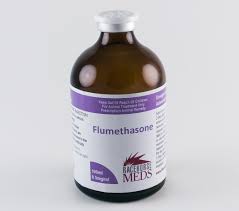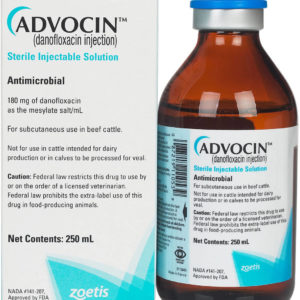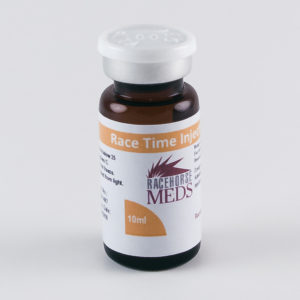Description
Norocarp 50mg/ml Solution for Injection for Dogs and Cats
2. QUALITATIVE AND QUANTITATIVE COMPOSITION OF Norocarp 50mg/ml
Each ml contains:
Active substance:
Carprofen 50mg
Excipients Norocarp:
Benzyl Alcohol 10mg
Sodium Formaldehyde Sulphoxylate 2.5mg
For a full list of excipients, see section 6.1
3. PHARMACEUTICAL FORM OF Norocarp 50mg/ml
Solution for Injection
A clear colourless to pale yellow solution.
4. CLINICAL PARTICULARS OF Norocarp 50mg/ml
The originating document has been archived. We cannot confirm the completeness, accuracy and currency of the content.
Norocarp Caplets
This page contains information on Norocarp Caplets for veterinary use.
The information provided typically includes the following:
Norocarp Caplets Indications
Warnings and cautions for Norocarp Caplets
Direction and dosage information for Norocarp Caplets
Norocarp Caplets
This treatment applies to the following species:
Dogs
Manufacturer of Norocarp: Norbrook
(carprofen)
ANADA 200-498, Approved by FDA
Non-steroidal anti-inflammatory drug
For Oral Use In Dogs Only
Norocarp Caplets Caution
Federal law restricts this drug to use by or on the order of a licensed veterinarian.
Description
Norocarp is a non-steroidal anti-inflammatory drug (NSAID) of the propionic acid class that includes ibuprofen, naproxen, and ketoprofen. Carprofen is the nonproprietary designation for a substituted carbazole, 6-chloro-α-methyl-9H-carbazole-2-acetic acid. The empirical formula is C15H12ClNO2 and the molecular weight 273.72. The chemical structure of carprofen is:
Carprofen is a white, crystalline compound. It is freely soluble in ethanol, but practically insoluble in water at 25°C.
Clinical Pharmacology
Norocarp is a non-narcotic, non-steroidal anti-inflammatory agent with characteristic analgesic and antipyretic activity approximately equipotent to indomethacin in animal models.1
The mechanism of action of carprofen, like that of other NSAIDs, is believed to be associated with the inhibition of cyclooxygenase activity. Two unique cyclooxygenases have been described in mammals.2 The constitutive cyclooxygenase, COX-1, synthesizes prostaglandins necessary for normal gastrointestinal and renal function. The inducible cyclooxygenase, COX-2, generates prostaglandins involved in inflammation. Inhibition of COX-1 is thought to be associated with gastrointestinal and renal toxicity while inhibition of COX-2 provides anti-inflammatory activity. The specificity of a particular NSAID for COX-2 versus COX-1 may vary from species to species.3 In an in vitro study using canine cell cultures, carprofen demonstrated selective inhibition of COX-2 versus COX-1.4 Clinical relevance of these data has not been shown. Carprofen has also been shown to inhibit the release of several prostaglandins in two inflammatory cell systems: rat polymorphonuclear leukocytes (PMN) and human rheumatoid synovial cells, indicating inhibition of acute (PMN system) and chronic (synovial cell system) inflammatory reactions.1
Several studies have demonstrated that carprofen has modulatory effects on both humoral and cellular immune responses.5-9 Data also indicate that carprofen inhibits the production of osteoclast-activating factor (OAF), PGE1, and PGE2 by its inhibitory effects on prostaglandin biosynthesis.1
Based upon comparison with data obtained from intravenous administration, carprofen is rapidly and nearly completely absorbed (more than 90% bioavailable) when administered orally.10 Peak blood plasma concentrations are achieved in 1-3 hours after oral administration of 1, 5, and 25 mg/kg to dogs. The mean terminal half-life of carprofen is approximately 8 hours (range 4.5-9.8 hours) after single oral doses varying from 1-35 mg/kg of body weight. After a 100 mg single intravenous bolus dose, the mean elimination half-life was approximately 11.7 hours in the dog. Carprofen is more than 99% bound to plasma protein and exhibits a very small volume of distribution.
Carprofen is eliminated in the dog primarily by biotransformation in the liver followed by rapid excretion of the resulting metabolites (the ester glucuronide of carprofen and the ether glucuronides of 2 phenolic metabolites, 7-hydroxy-carprofen and 8-hydroxy carprofen) in the feces (70-80%) and urine (10-20%). Some enterohepatic circulation of the drug is observed.
Norocarp Caplets Indications
Norocarp is indicated for the relief of pain and inflammation associated with osteoarthritis and for the control of postoperative pain associated with soft tissue and orthopedic surgeries in dogs.
Contraindications
Norocarp should not be used in dogs exhibiting previous hypersensitivity to carprofen.





Reviews
There are no reviews yet.